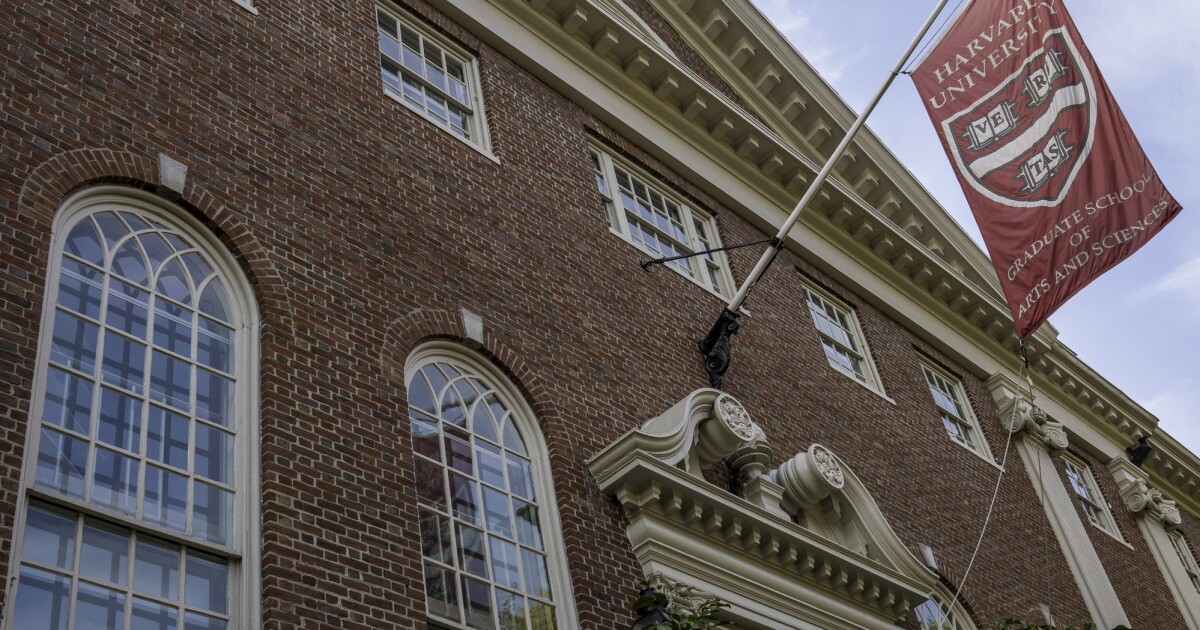

The University of Pennsylvania and Harvard, two Ivy League schools, are facing a donor revolt as prominent financiers cut off support over their response to antisemitism and the recent Hamas terrorist attacks.
The two institutions, among the nation’s most prestigious, have seen several high-profile donors close their checkbooks amid international outrage against student activists who have excused recent terrorist attacks in Israel by Hamas. The attacks killed more than 1,300 people, while at least 3,000 have been killed in Israel’s military response, according to local authorities.
SENATE WORKING ON MULTIPLE FRONTS WHILE HOUSE REMAINS SPEAKERLESS
In the wake of the conflict, university administrators have faced pressure to condemn Hamas and the campus organizations and leaders who have issued statements in support of the terrorist group. But the university responses, especially by UPenn President Liz Magill, have infuriated donors, who have accused the schools of equivocating in the face of terrorism.
This week, the Pennsylvania Ivy League school lost donations from the foundation of Jon Huntsman, the former Utah governor and ambassador to Russia and China, who said the institution was “almost unrecognizable” and had embraced “moral relativism.”
Ron Lauder, the heir to the Estee Lauder cosmetics company, similarly told Magill that he would “reexamine” his financial support for UPenn, citing a campus climate of antisemitism that included a “Palestine Writes Literature Festival” last month that Lauder had personally requested that Magill cancel, according to the New York Post. Major Penn donor David Magerman also cited the event to explain why he was ceasing donations to the school.
Billionaire CEO Marc Rowan called on Magill to resign and said he would no longer donate because the university president failed to condemn the event, which he described as “hate-filled.”
“The polarizing Palestine Writes gathering featured well-known antisemites and fomenters of hate and racism and was underwritten, supported and hosted by various UPenn academic departments and affiliates,” Rowan wrote in an op-ed.
At Harvard, the nonprofit Wexner Foundation was the most high-profile donor to date to announce an end to its financial support. The foundation accused the school of “tiptoeing” around the issue of antisemitism and Hamas after 31 student groups published a statement blaming Israel for the deadly attacks.
“We are stunned and sickened by the dismal failure of Harvard’s leadership to take a clear and unequivocal stand against the barbaric murders of innocent Israeli civilians,” the foundation said in a letter to the school.
In both cases, much of the donor outrage centered on institutional response to the incidents rather than the incidents themselves. Harvard President Claudine Gay attempted to quell the firestorm by releasing a video statement last week that said the university “rejects terrorism,” “rejects hate,” and “rejects the harassment or intimidation of individuals based on their beliefs” while asserting the university’s support for free expression.
In Magill’s case, the outrage focused more on the institution’s refusal to condemn the “Palestine Writes Literature Festival.” Magill has issued several statements condemning Hamas, beginning on Oct. 10, three days after the attacks.
“I think that what this has done is this has prompted a real reckoning,” Mike Gonzalez, a senior fellow at the Heritage Foundation, told the Washington Examiner in an interview. He explained that the response to the attacks has exposed widespread problems in higher education.
“This has now grabbed the attention of people because of the nature of what happened: It was a killing spree,” Gonzalez said. “It was the raping of young women, it was the parading [of] their bodies, it was killing children, it was killing parents in front of children, it was abducting grandmothers. It was horrific. And then we saw professors and students come out and celebrate this.”
“I think people have begun to say, ‘Hang on, well, what have we done to ourselves here?'” he added.
CLICK HERE TO READ MORE FROM THE WASHINGTON EXAMINER
Gonzalez said the schools should not have had difficulty fielding the controversy in the first place.
“There’s no gray area for students and professors. This is not a tough one,” he said. “There’s no context that a professor can give that justifies the raping of women and then humiliating their bodies. … It’s just horrific stuff.”





